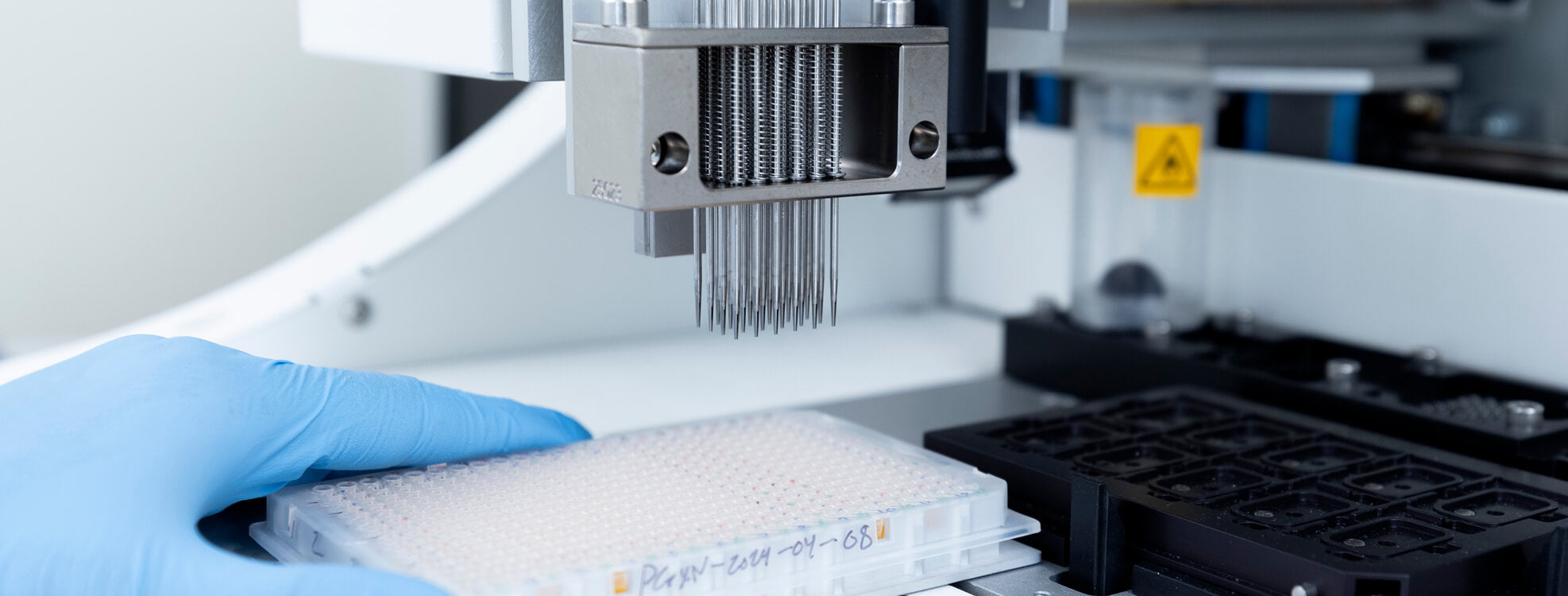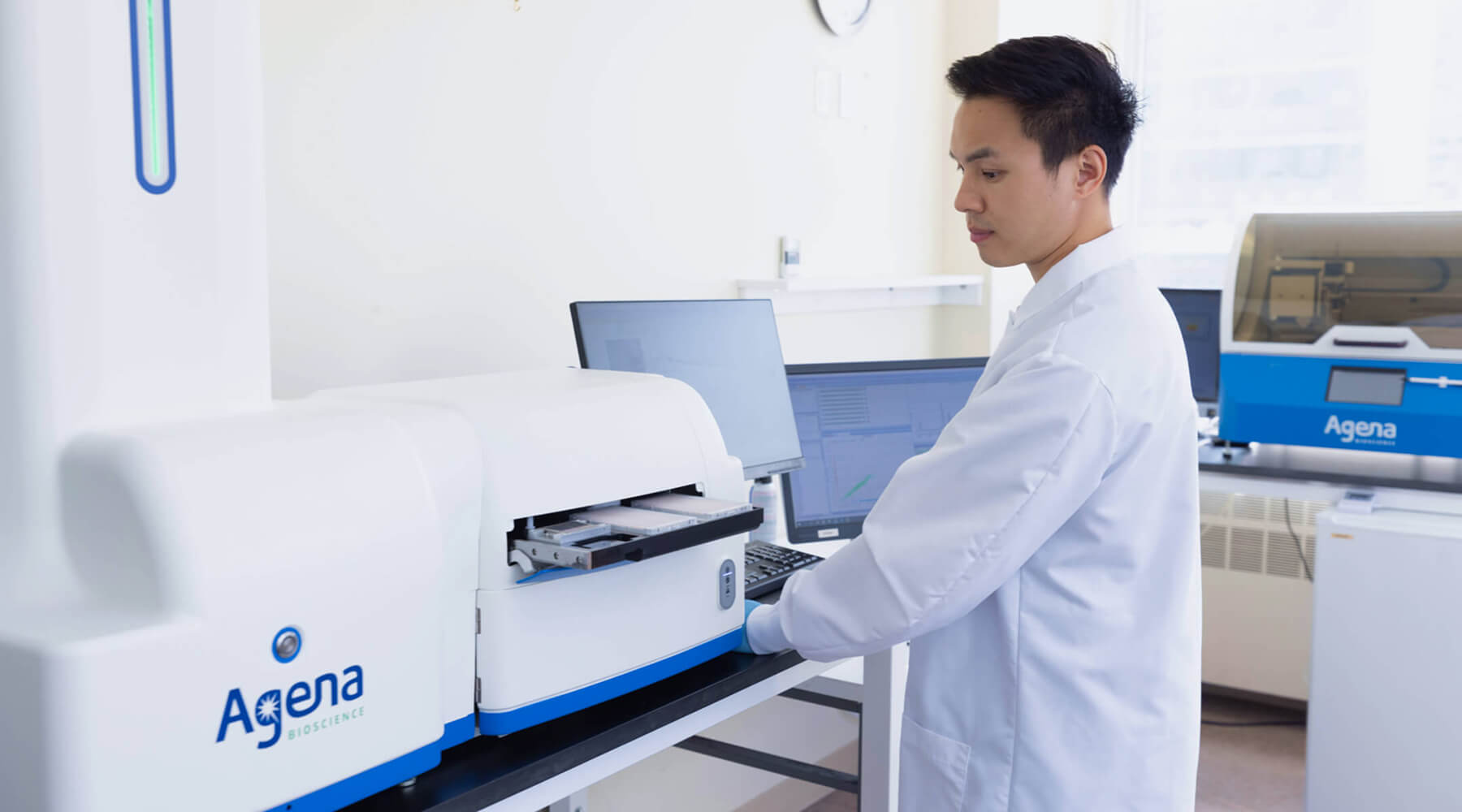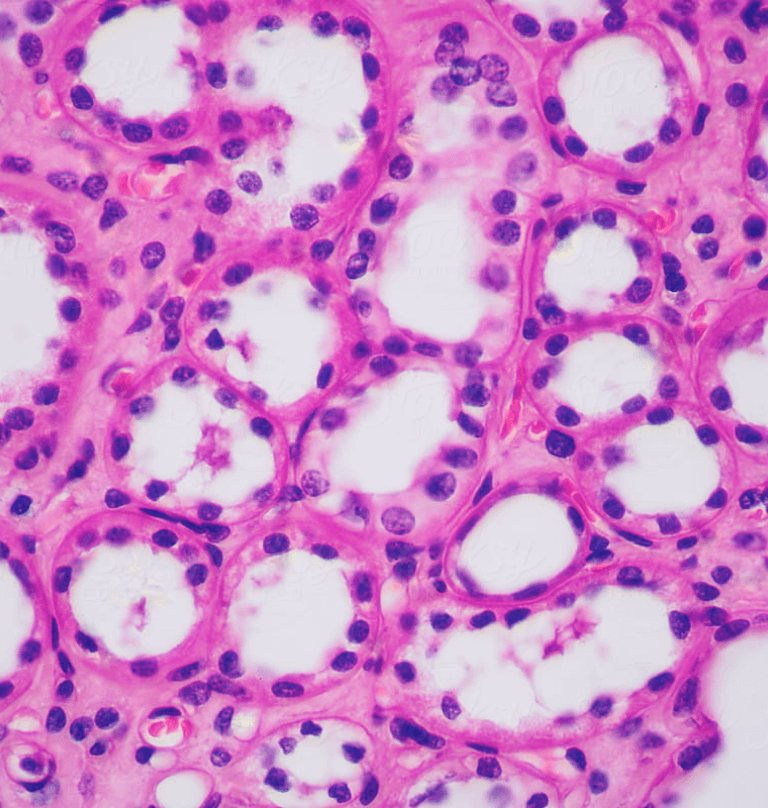La science derrière la médecine personnalisée
Découvrez la science derrière Inagene et ce qui fait de nous le test pharmacogénétique le plus complet au Canada.
La pharmacogénétique étudie la façon dont les gènes influencent la réaction de chaque personne aux médicaments. Votre constitution génétique unique influence la façon dont votre corps réagit aux médicaments. La pharmacogénétique utilise ces informations pour personnaliser les traitements et obtenir les meilleurs résultats possibles.
Interactions gène-médicament
Les interactions entre les médicaments et les gènes peuvent avoir un large éventail d'effets. Par exemple, vos gènes peuvent influencer la vitesse à laquelle vous pouvez métaboliser un médicament. Cela peut modifier le dosage idéal. Un métabolisme plus lent d'un médicament peut même augmenter les effets secondaires ou les réactions toxiques.
L'importance de la pharmacogénétique
Comprendre sa propre réaction aux médicaments est un outil puissant. Elle peut permettre d'éviter de longues recherches pour trouver le bon médicament ou, dans certains cas, de sauver des vies. La pharmacogénétique est particulièrement importante dans des domaines tels que le traitement du cancer, la cardiologie et la santé mentale. Dans ces domaines, le choix du bon médicament et de la bonne posologie peut avoir un impact considérable sur les résultats du traitement.
Exemples de pharmacogénétique en action
-
Maladies cardiovasculaires
-
Troubles de la santé mentale
-
Le cancer
-
Gestion de la douleur
-
Affections auto-immunes
-
Troubles neurologiques

Maladies cardiovasculaires
La réaction aux anticoagulants (warfarine, clopidogrel) ou aux statines varie d'une personne à l'autre en raison de leurs différences génétiques. De nombreuses personnes ressentent des effets secondaires gênants ou ne se rendent pas compte que le médicament n'est pas efficace pour prévenir les crises cardiaques et les accidents vasculaires cérébraux. Les tests pharmacogénétiques permettent d'éviter cela en adaptant le bon médicament à l'individu.
Exemples de médicaments
warfarine, clopidogrel, statines

Troubles de la santé mentale
Les différences dans les gènes d'une personne peuvent modifier l'efficacité de ces médicaments et les effets secondaires qu'ils peuvent provoquer. Les tests pharmacogénétiques peuvent augmenter de 85 % les chances de rémission des patients souffrant de dépression.
Exemples de médicaments
ISRS, antipsychotiques

Le cancer
Un aspect essentiel des tests pharmacogénétiques en cancérologie consiste à aider à prédire le risque de toxicité grave, de sorte que des traitements alternatifs ou des dosages non standard puissent être utilisés à la place.
Exemples de médicaments
Certaines chimiothérapies (par exemple, la capécitabine)

Gestion de la douleur
Certaines personnes peuvent ne pas ressentir de soulagement de la douleur en raison de différences génétiques dans la manière dont leur organisme traite ces médicaments, tandis que d'autres peuvent présenter des effets secondaires dangereux tels que la dépression respiratoire.
Exemples de médicaments
Opioïdes comme la codéine et le tramadol

Affections auto-immunes
Les médicaments utilisés dans des pathologies telles que la polyarthrite rhumatoïde ou les maladies inflammatoires de l'intestin peuvent avoir des effets variables en fonction des variantes génétiques, ce qui a un impact sur les risques de toxicité.
Exemples de médicaments
Médicaments comme l'azathioprine et la mercaptopurine

Troubles neurologiques
Les tests génétiques permettent d'identifier les patients qui présentent un risque plus élevé de réactions graves, comme le syndrome de Stevens-Johnson, qui est une réaction cutanée grave.
Exemples de médicaments
Anti-épileptiques comme la carbamazépine et la lamotrigine
La nutrigénomique étudie la relation entre vos gènes, votre alimentation et votre santé. Elle se concentre sur la façon dont vos gènes interagissent avec les aliments, les boissons et les suppléments que vous consommez, ainsi qu'avec vos habitudes en matière d'exercice physique. La nutrigénomique peut vous aider à comprendre comment votre corps réagit à différents nutriments en fonction de votre ADN.
Analysez votre ADN pour obtenir des informations personnalisées sur la nutrition et la forme physique
Inagene propose des tests de nutrition et de condition physique dans le cadre d'un partenariat avec Nutrigenomix, une société de biotechnologie qui propose des tests génétiques dans plus de 50 pays. Les résultats du test permettent de créer un plan personnalisé pour améliorer votre santé et votre condition physique.
Exemples de nutrigénomique en action
-
Personnaliser la gestion du poids
-
Décoder les sensibilités alimentaires
-
Découvrir les besoins cachés en nutriments
-
Prévenir les maladies chroniques

La nutrigénomique vous offre une feuille de route personnalisée pour la gestion du poids, adaptée à votre constitution génétique unique. Découvrez comment votre corps réagit aux macronutriments - protéines, lipides et glucides - pour élaborer le régime qui vous convient le mieux.

La nutrigénomique révèle la base génétique des sensibilités alimentaires, ce qui vous permet de modifier votre régime alimentaire en connaissance de cause. Comprendre votre tolérance au glucose, au lactose, à l'alcool et à la caféine. Éviter les essais et les erreurs dans la gestion des sensibilités alimentaires.

Détecter les carences en nutriments essentiels tels que la vitamine D, la vitamine B12, le calcium et le folate afin de prévenir l'inflammation chronique et la fatigue. Ajustez votre régime alimentaire pour améliorer votre composition corporelle et vos niveaux d'énergie. Apprenez quels suppléments peuvent ou non être nécessaires dans votre cas.

Identifier les connaissances génétiques liées à votre régime alimentaire afin de réduire le risque de maladies chroniques telles que le diabète et les affections cardiovasculaires. Mettre en œuvre un régime alimentaire fondé sur des données scientifiques pour assurer le bien-être et la longévité tout au long de la vie.
Notre vision de la précision et de l'innovation

Diversité de la recherche
Nous nous engageons à fournir une couverture génétique complète et inclusive. Nos panels comprennent non seulement des variantes bien établies, mais aussi des marqueurs rares et divers, en particulier ceux qui sont sous-représentés chez les personnes d'origine non européenne. En incorporant des données provenant d'un large éventail de groupes ethniques et en mettant continuellement à jour nos bases de données de variants, nous réduisons considérablement le risque de classer à tort une personne présentant un métabolisme médicamenteux anormal comme ayant un profil normal. Notre priorité est de fournir des informations précises et personnalisées aux personnes de toutes origines.
Approche fondée sur des données probantes
Nous concevons nos produits à partir d'approches fondées sur des données probantes. Nous n'utilisons que des sources réputées telles que le Clinical Pharmacogenetics Implementation Consortium (CPIC), le Dutch Pharmacogenetics Working Group (DPWG), la FDA, Santé Canada et d'autres.
Amélioration continue
Nous nous tenons au courant des recherches en cours et y contribuons activement. Lorsque vous achetez notre test, vous recevez les informations les plus récentes et les plus précises. C'est essentiel, car de nouvelles variantes génétiques et des associations gène-médicament sont continuellement découvertes.
Notre équipe

Dr. Kathy Siminovitch

Dr. Ben Pinder

Dr. Ashwin Juneja

Sindy Zheng

Oscar Tran
-
Notre engagement en matière de sécurité et de protection de la vie privée
-
La protection de votre vie privée et de vos données personnelles est notre priorité absolue. Nous veillons à ce que vos données génétiques soient sécurisées, qu'elles ne soient jamais partagées ou vendues, et nous nous conformons pleinement aux réglementations canadiennes en matière de protection des données, y compris la LPRPDE et les réglementations provinciales en matière de protection de la vie privée. Nos mesures de protection complètes - physiques, électroniques et procédurales - protègent contre l'accès, l'utilisation, l'altération, la duplication, la destruction, la divulgation, la perte ou le vol non autorisés de vos renseignements personnels.
FAQ
Quelle est la précision des tests pharmacogénétiques ?
Les tests Inagene sont uniques par leur exhaustivité, ce qui nous distingue par leur précision. Nous testons plus de variantes génétiques communes dans les populations non européennes que n'importe quel autre produit. Sans cette couverture génétique, la génétique d'une personne pourrait être identifiée à tort comme normale par un autre test, ce qui rendrait ce dernier inexact.
Quel est le meilleur moment pour passer un test pharmacogénétique ?
Le meilleur moment pour faire le test est avant d'avoir un besoin spécifique de médicaments, en tant que mesure proactive. Si vous avez besoin d'un traitement, vous pouvez communiquer vos résultats à votre prestataire de soins de santé. Ces résultats pourront alors être pris en compte lors de la sélection du médicament qui vous convient.
Pourquoi analyser votre ADN pour obtenir des informations personnalisées sur la nutrition et la forme physique ?
La nutrition est vitale pour la santé, et les recommandations standard ne tiennent pas compte des différences individuelles. Vos gènes peuvent avoir une influence sur tout, de la gestion du poids à la santé cardiométabolique, en passant par les performances physiques et le risque de blessure. En travaillant avec votre médecin ou votre diététicien, vous serez en mesure de savoir quels aliments vous devriez consommer plus ou moins en fonction de votre ADN afin de réduire votre risque de développer des maladies chroniques, d'optimiser votre santé, vos performances, votre fertilité, et bien plus encore.
Si un médicament ne figure pas dans le rapport, comment puis-je savoir si mon patrimoine génétique n'affectera pas ma réponse ?
Lorsqu'ils traitent leurs patients, les prestataires de soins de santé s'appuient généralement sur des directives de prescription, sur leur jugement et sur des facteurs non génétiques propres à la personne traitée. Si le(s) médicament(s) concerné(s) figure(nt) dans un rapport pharmacogénétique, il est conseillé de tenir compte également de ce résultat. Si un médicament ne figure pas dans nos tests, c'est souvent parce qu'il n'y a pas eu suffisamment d'études scientifiques pour établir les facteurs génétiques influençant la réponse d'un individu à ce médicament, et par conséquent, la pharmacogénétique n'est pas un facteur qui influencerait les décisions de traitement.
-
Citations
-
- McInnes G, Lavertu A, Sangkuhl K, Klein TE, Whirl-Carrillo M, Altman RB. Pharmacogenetics at Scale : An Analysis of the UK Biobank. Clin Pharmacol Ther. 2021;109(6):1528-1537. doi:10.1002/cpt.2122
- Swen JJ, van der Wouden CH, Manson LE, et al. A 12-gene pharmacogenetic panel to prevent adverse drug reactions : an open-label, multicentre, controlled, cluster-randomised crossover implementation study. Lancet. 2023;401(10374):347-356. doi:10.1016/S0140-6736(22)01841-4
- Ghanbarian S, Wong GWK, Bunka M, et al. Cost-effectiveness of pharmacogenomic-guided treatment for major depression. CMAJ. 2023;195(44):E1499-E1508. doi:10.1503/cmaj.221785







